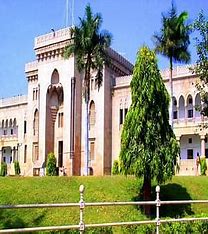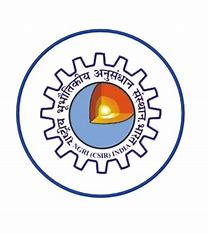National Geophysical Research Institute (NGRI)
Address:
National Geophysical Research Institute (NGRI)
Uppal Road,
Hyderabad, Telangana – 500 007,
India
Postal Code (ZIP Code):
500 007
About National Geophysical Research Institute (NGRI)
The National Geophysical Research Institute (NGRI), located in Hyderabad, Telangana, is one of India’s premier institutions dedicated to conducting cutting-edge research in geophysical sciences. Established in 1961 and functioning under the Council of Scientific and Industrial Research (CSIR), NGRI is a leader in the study of Earth’s subsurface through geophysical methods and plays a vital role in addressing the scientific challenges of natural resource exploration, environmental management, and disaster mitigation.
NGRI is primarily focused on the study of geophysical phenomena, earthquakes, seismic hazards, mineral exploration, and subsurface structures, making it a pivotal institution in the field of geophysics. The research outputs of NGRI have profound implications not only for geological science but also for national development, as they aid in the exploration of natural resources, environmental protection, and disaster management, especially in seismically active regions.
The institute uses geophysical techniques such as seismology, electromagnetic surveys, gravimetry, geodesy, and remote sensing to study the Earth’s interior. By investigating the subsurface processes, NGRI aims to enhance the understanding of Earth’s structure and behavior, which, in turn, aids in disaster preparedness and resource management. The institute also collaborates with several national and international organizations to further the scientific study of the Earth and contribute to global knowledge on geophysical processes.
History and Formation of NGRI
The roots of NGRI can be traced back to the 1960s when India realized the need for specialized research into the Earth’s geophysical processes. Initially, geophysical research in the country was limited, and India’s ability to explore its natural resources and understand seismic hazards was limited by the lack of advanced research in geophysical sciences. To address these gaps, the Council of Scientific and Industrial Research (CSIR) established the NGRI in 1961 as a multidisciplinary research institute dedicated to the study of geophysical phenomena and their applications.
NGRI’s formation was also driven by the growing awareness of seismic hazards in India, especially in light of the devastating earthquakes in regions like Kashmir, Assam, and the Himalayas. The institute’s research quickly gained recognition in the country and internationally, positioning it as a leading center for geophysical research and the study of Earth’s crust.
Over the decades, NGRI has expanded its research scope to include not only seismic hazards but also areas like mineral exploration, water resources, environmental monitoring, and climate change. The institute’s contributions have supported various national projects and have been instrumental in enhancing India’s capability in geophysical research and resource exploration.
Mission and Vision
Mission:
NGRI’s mission is to advance the understanding of Earth’s physical processes by conducting high-quality research in geophysics and geophysical technologies. The institute aims to contribute to national development by developing innovative geophysical tools and techniques for resource exploration, disaster management, and environmental sustainability.
Vision:
The vision of NGRI is to become a world leader in geophysical research, recognized for its contributions to understanding Earth’s structure, natural hazards, and resource exploration. The institute envisions a future where its research leads to the sustainable development of Earth’s resources, improved disaster preparedness, and the mitigation of environmental risks.
Research and Areas of Focus
NGRI’s research spans a wide array of geophysical topics, contributing to both fundamental scientific knowledge and applied research that addresses national and global challenges. Some of the key areas of focus at NGRI include:
- Seismology and Earthquake Research:
One of NGRI’s primary research areas is seismology—the study of earthquakes, seismic waves, and the Earth’s internal structure. India is seismically active, and understanding seismic hazards is critical for mitigating the impact of earthquakes on communities, infrastructure, and the economy. NGRI conducts detailed seismic surveys and studies, including the monitoring of earthquake activity, analyzing seismic hazards, and evaluating earthquake-prone regions. NGRI has established seismic networks across India to monitor real-time seismic activity and provide early warnings for potential earthquakes. - Exploration Geophysics:
NGRI is a leader in the application of geophysical techniques for the exploration of natural resources, such as minerals, groundwater, and oil and gas deposits. The institute uses advanced techniques such as gravity surveys, magnetic surveys, and electromagnetic methods to explore subsurface structures. Through its work, NGRI has contributed significantly to the discovery of mineral deposits and groundwater resources in various parts of India. - Geothermal and Energy Resources:
NGRI conducts research on geothermal energy, a renewable resource that could play an important role in meeting India’s growing energy demands. The institute explores subsurface heat sources, particularly in geologically active regions, to assess their potential for energy production. NGRI’s work in geothermal energy also includes studying the geothermal gradient and mapping potential geothermal sites across the country. - Environmental Geophysics:
The impact of human activity on the environment is another key research focus at NGRI. The institute conducts environmental geophysical surveys to assess pollution, soil contamination, and groundwater depletion. This research is vital for developing sustainable practices in land use, urban development, and resource management. NGRI’s work also includes monitoring the impact of climate change on the Earth’s subsurface and recommending mitigation strategies. - Geodesy and Remote Sensing:
Geodesy—the study of Earth’s shape, gravity field, and rotation—is a critical area of research at NGRI. The institute uses geodetic measurements to study plate tectonics, earth movements, and crustal deformation. Additionally, remote sensing technologies are used to monitor the Earth’s surface and track changes in topography, land use, and environmental conditions. This research has applications in disaster management, infrastructure planning, and resource mapping. - Geophysical Instrumentation and Technology Development:
NGRI is at the forefront of developing advanced geophysical instruments and technologies. The institute works on innovative geophysical equipment for measuring seismic activity, electromagnetic fields, and gravity, among other parameters. NGRI also develops data analysis tools to interpret the complex datasets obtained from geophysical surveys and remote sensing. - Disaster Mitigation and Risk Management:
NGRI’s research is crucial in helping mitigate natural disasters, particularly earthquakes and tsunamis, which pose significant risks to India’s coastal and seismic regions. The institute conducts hazard assessment studies and provides early warning systems to help communities prepare for potential disasters. NGRI also contributes to national disaster management plans by offering technical expertise in the areas of earthquake-resistant engineering, risk assessments, and evacuation strategies.
Training and Capacity Building
In addition to research, NGRI is actively involved in training and capacity building for professionals in geophysics. The institute offers workshops, training programs, and courses in geophysical methods, data analysis, and instrumentation. These programs are designed for scientists, engineers, and students who wish to enhance their knowledge in geophysical research and its applications in resource exploration and disaster management.
The institute also conducts collaborative training programs with universities, research organizations, and government agencies to train professionals in applied geophysics, seismic hazard assessment, and earthquake monitoring.
Collaborations and Partnerships
NGRI collaborates with numerous national and international organizations, universities, and research institutes to advance geophysical research. It works with the Indian Space Research Organisation (ISRO), Indian Institute of Technology (IIT), Department of Atomic Energy (DAE), and International Geophysical and Seismological Institutes to share knowledge, enhance research capabilities, and improve technology development.
The institute also engages in joint research programs with global geophysical agencies and has partnerships with UNESCO, World Bank, and other international bodies to address global challenges such as natural disaster management and resource exploration.
Key Achievements and Impact
NGRI has made several significant contributions to the scientific and societal understanding of Earth’s processes. Some of its key achievements include:
- Pioneering Seismic Networks: NGRI established one of India’s first extensive seismic monitoring networks, providing critical data for earthquake prediction and hazard mitigation.
- Mineral and Resource Discovery: The institute has played a key role in discovering several mineral deposits and groundwater resources in India through geophysical exploration techniques.
- Geothermal Energy Research: NGRI has developed promising insights into geothermal energy potential in India, contributing to the development of renewable energy resources.
- Disaster Risk Reduction: NGRI’s work on seismic hazard assessments has been instrumental in designing earthquake-resistant structures and improving disaster preparedness and response strategies.
Conclusion
The National Geophysical Research Institute (NGRI) is an integral part of India’s scientific community, conducting pioneering research in geophysics, earthquake hazards, resource exploration, and environmental monitoring. Through its advanced scientific techniques, NGRI contributes to sustainable development, disaster preparedness, and resource management, ensuring that India can meet its challenges in a rapidly changing world. Its

